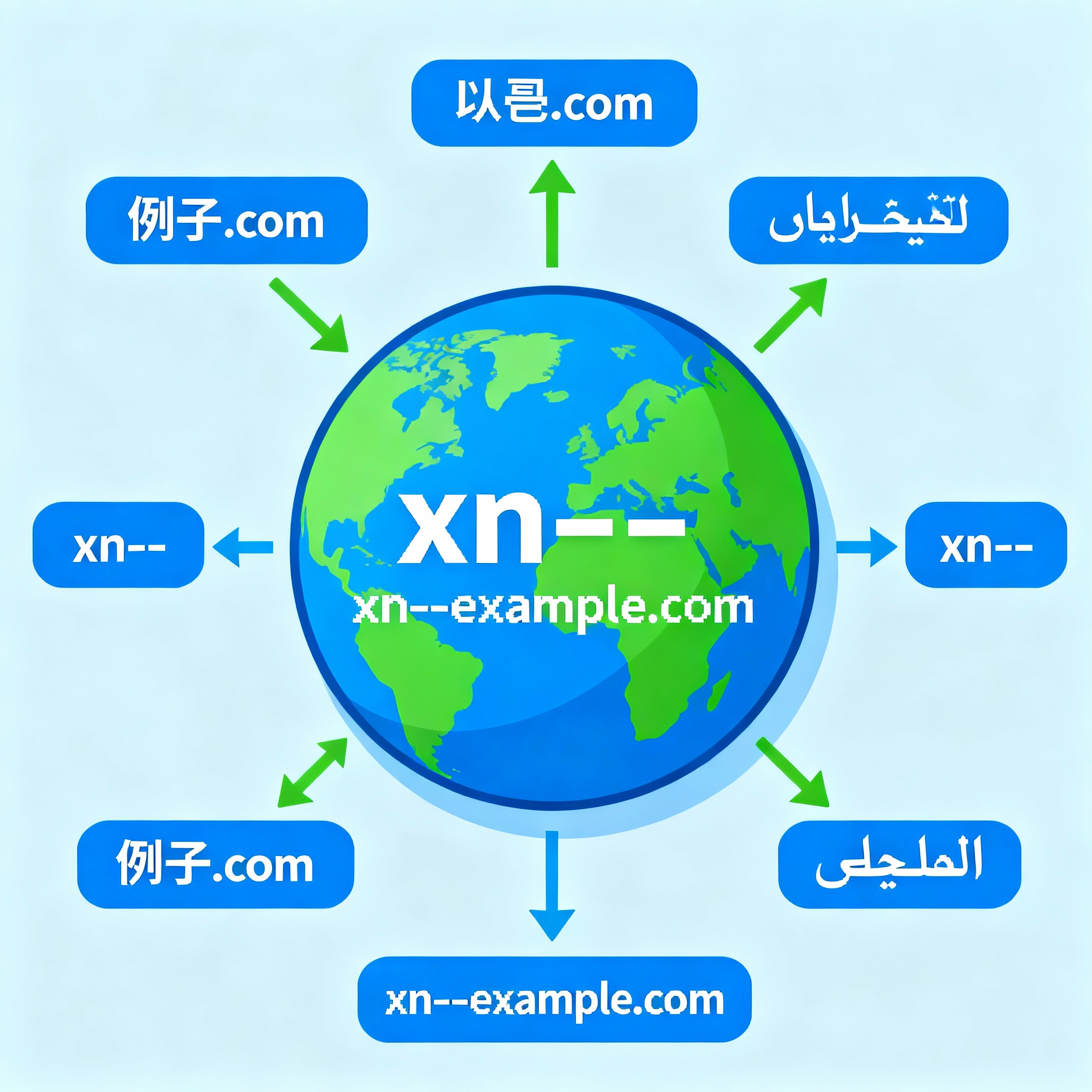
IDN Punnycode converter
Created on 19 October, 2025 • Text tools • 100 views • 2 minutes read
The modern internet is built for a global audience, and domain names are no exception. With the rise of non-English speaking users
IDN Punycode Converter: Enabling Global Connectivity With Multilingual Domain Names
The modern internet is built for a global audience, and domain names are no exception. With the rise of non-English speaking users and the prevalence of languages with unique scripts, the need for internationalized domain names (IDN) has surged. An IDN Punycode converter is the essential tool that bridges this linguistic diversity, empowering users and businesses to register and use websites in their native languages while maintaining compatibility with the global Domain Name System (DNS).
What is an IDN Punycode Converter?
An IDN Punycode converter transforms internationalized domain names—which include characters outside the basic Latin alphabet—into a special representation called Punycode. The DNS infrastructure, which underpins the internet, is limited to ASCII characters (the basic English letters, numbers, and hyphens). Non-ASCII domain names, such as those containing accented letters (e.g., café.com) or entirely different scripts (e.g., 中文.com), must be converted into Punycode for proper registration and resolution across all internet platforms.
For example, “münchen.de” becomes “xn--mnchen-3ya.de” when processed through a converter. The “xn--” prefix signals that the domain is encoded in Punycode, allowing browsers and DNS servers to interpret and display it correctly for global users.
Why is Punycode Conversion Important?
The widespread adoption of IDN and Punycode serves several critical functions:
- Global Reach: Businesses and individuals can use domain names in their own languages, unlocking access to broader, linguistically diverse audiences.
- SEO Optimization: Search engines support Punycode domains, enabling local businesses to rank higher in regional search results, boosting their online visibility.
- User Trust and Accessibility: Native script domains make websites more user-friendly and trustworthy for local populations, increasing engagement and retention.
- Security: By following proper encoding standards, Punycode helps prevent certain types of cyberattacks, such as homograph spoofing.
How Does an IDN Punycode Converter Work?
The process begins when a user enters a domain name containing non-Latin or special characters into the converter. The tool then encodes each label (separated by dots) into ASCII using the Punycode algorithm, ensuring that the result remains unique and recognizable. This transformation is bi-directional, allowing for both encoding (Unicode to Punycode) and decoding (Punycode back to Unicode), making the converter versatile for both registration and daily use.
Modern converters are available as online tools, browser extensions, and implementation in programming libraries, offering instant results for both single domains and bulk conversions. They check for invalid characters, long labels, and provide clear outputs to prevent domain registration errors.
Best Practices for Using an IDN Punycode Converter
For optimal use:
- Always verify the original and converted domain before registration to avoid typos and phishing vulnerabilities.
- Rely on updated converters compatible with current IDNA standards.
- Test converted domains in different web browsers and SEO tools to ensure universal accessibility and accurate search ranking.
The Future of International Domains
As more regions embrace online presence in their native languages, the demand for seamless, secure IDN Punycode conversion will only grow. For businesses aiming for global SEO dominance and user trust, leveraging these tools is no longer optional—it’s essential for success in the digital marketplace.
Popular posts
-
GIF to BMPImage Manipulation tools • 583 views
-
GIF to WEBPImage Manipulation tools • 462 views
-
GIF-to-PNGImage Manipulation tools • 363 views
-
SHA-3/512 generatorConverter tools • 292 views
-
GIF to JPGImage Manipulation tools • 257 views